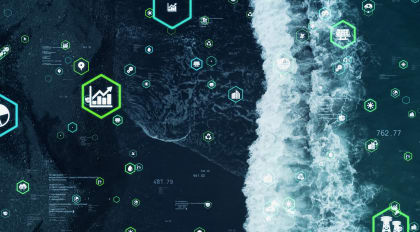- Climate change
- Integrated Water Resource Management (IWRM)
- Aquatic ecosystem
- Nature-Based Solutions (NBS)
- Water usage and resources for Agricutlure
World Food Day - Good water management is essential for food security

On a global scale, agriculture is responsible for 72% of water withdrawals; 2.4 billion people live in countries subject to water stress; almost 780 million people will be chronically hungry in 2022; 600 million people depend, at least in part, on aquatic food systems.
These figures highlight the importance of balanced, sustainable management of water resources to ensure food security for all.
In all latitudes, faced with climate change and the increase in associated phenomena (drought, flooding, etc.), agriculture is increasingly exposed to these climatic hazards. At the same time, agriculture is having a major impact on water resources (in terms of water quality and quantity).
What's more, with increased demands from other users due to the expansion of the urban population, and growing demand from the energy and industry sectors, this sector is going to have to share the resource more effectively.
OiEau promotes the levers available to encourage better use of water in the agricultural sector.
Reducing water consumption in agriculture involves not only improving irrigation techniques, but also modifying crop itineraries, adopting Nature-based Solutions (NBS), etc. REUSE (Reuse of Treated Wastewater), which aims to recover treated wastewater from wastewater treatment plants, which is often discharged into the natural environment, can help limit the impact of agriculture on natural resources, and also provide better control over soil amendment.
OiEau also promotes Integrated Water Resources Management (IWRM) at all levels: local, national and international, and especially in transboundary areas.
By encouraging meetings between stakeholders and intersectoral coordination, the exchange of experience, the setting up of systems to monitor the quality and quantity of the resource, and the training of operators, OiEau gives the stakeholders in the agricultural sector the means to fulfil their role in satisfying a need as basic as food.




